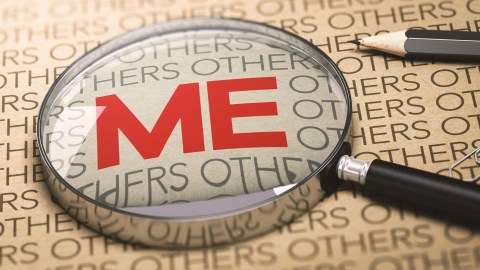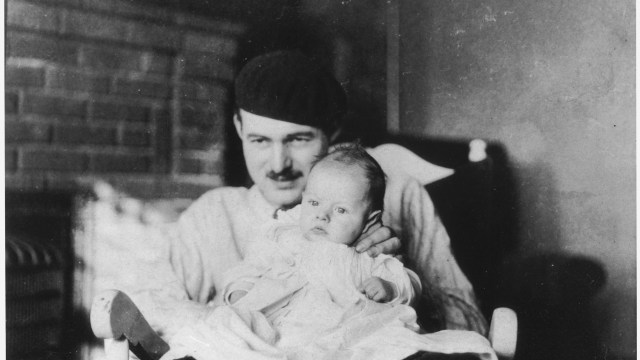Why is everyone so selfish? Science explains

Credit: Adobe Stock, Olivier Le Moal.
- Selfish behavior has been analyzed by philosophers and psychologists for centuries.
- New research shows people may be wired for altruistic behavior and get more benefits from it.
- Times of crisis tend to increase self-centered acts.
Why do so many people seem so selfish these days, putting their needs first? The coronavirus has not only decimated our population and placed lives on anxious hold, it has also been a test of character. A test that, by and large, we appear to be failing. People are at each other’s throats over wearing masks, the true facts of the pandemic, blatant racism, and old monuments, all the while appearing to be driven by pure selfishness to others – a feeling coming from all sides of the political spectrum. Where does this selfish behavior come from, exacerbated by a series of crises?
For starters, it is to some extent, natural to be self-oriented. After all, what else do we know? We are at the center of our own worlds, always looking to bolster the ego. Self-interest is the most fundamental human motivation, argued English philosopher Thomas Hobbes all the way back in the 1600s. But acting out of self-interest is not necessarily the only thing on our minds. As research has shown, human behavior can be motivated as much by altruism and moral considerations. So at what point does healthy self-care and the right amount of self-love become selfishness, a trait we judge negatively?
Psychologists, like F. Diane Barth, define selfishness as having two primary pillars: “Being concerned excessively or exclusively with oneself” and “Having no regard for the needs or feelings of others.” Of course, most of us probably live somewhere on a sliding scale of selfless to selfish moments. Still, in the public consciousness being selfish is erroneously associated with becoming more successful, even though the facts don’t necessarily bear that out.
A 2020 study published in the Journal of Personality and Social Psychology looked to figure out if people who prioritize self-oriented behavior did better in life. The team led by Kimmo Eriksson of Stockholm University compared such factors as the yearly income and number of biological children. They analyzed a large sample of responses by 5,294 Americans to the public opinion General Social Survey (GSS) between 2002 and 2014, as well as European responses to the European Social Survey (ESS). The scientists identified the more selfish people by their answers to various survey questions. Overall, while the researchers found that in public perception, 68 percent of the people believed selfishness was a common trait of those who made more money, in reality, people with selfless attitudes and behavior had higher incomes and also more children. “Generosity pays,” as states the title of their study.
Here Paul Krugman, the Nobel Prize-winning economist, speaks about the virtues of selfishness:
Paul Krugman on the Virtues of Selfishness
.
What’s more, altruistic behavior may be the default option in our brains, suggests research carried out in 2016/2017 by a team led by Leonardo Christov-Moore from UCLA. They found an area of the prefrontal cortex that can be specifically affected to make people less giving.
So if selflessness is rooted in the brain, why do some people have such a hard time caring about the needs of others? The answer might lie in emotional intelligence, as pointed out psychologist Lisa Marie Bobby in an interview. “Emotional intelligence exists on a spectrum, and some individuals are higher in emotional intelligence than others,” she shared. “One symptom of low emotional intelligence is the tendency to be self-absorbed, or exclusively concerned about what you’re thinking, feeling, needing and wanting, instead of the thoughts, feelings, needs and desires of others.”
Evolution Is Moving Us Away from Selfishness. But Where Is It Taking …
Another unfortunate factor – many find it hard to detect selfishness in themselves. As a 2020 study from Yale psychologists and economists at the University of Zurich found out, selfish people make adaptions to their memories to avoid feeling bad about their egotistical behavior. The research, published on April 29 in the journal Nature Communications, revealed that people tend to remember themselves being better to others than they actually were.
“When people behave in ways that fall short of their personal standards, one way they maintain their moral self-image is by misremembering their ethical lapses,” explained Molly Crockett, assistant professor of psychology at Yale University, and the study’s senior author.
Fast-forward a few years from now, and certainly more than a few people will be remembering their actions of today with a very different slant from what actually happened. As it is, getting a better grasp on behavior that doesn’t take others into consideration is everyone’s personal responsibility. Where does one right end (let’s say, the liberty not to wear masks) and the right of everyone else to good health begin? At what point does your right not to get infected outweigh the right of another to pursue economic prosperity? How much does my right to survive depend on the good will and cooperation from others? Answering these truthfully, without feeling attacked, can stem the tide of real and perceived selfishness that goes against our better natures and costs us lives and societal degradation.
Exploring Morality and Selfishness in Modern Times
.





